Last week, we discussed one of the biggest barriers to the adoption of digital menu boards — their seemingly-high cost — and debunked some of the most common beliefs about making an investment in these types of digital displays. This week, we’ll examine best practices for their implementation in quick-service and fast-casual restaurant environments.
Considering an investment in digital menu boards can be more than a little overwhelming, and knowing where to even begin to start is often part of the problem. But to paraphrase Shel Silverstein, the only way to devour a whale is by taking one bite at a time. And so it goes with rolling out a dynamic menu board program.
4 Important Steps in Implementing Digital Menu Boards
- Starting with a single location is not an unreasonable choice to make. On the contrary, for those interested in closely analyzing ROI (and who isn’t, in food service?), it is often the best option. Test, test and then test again.
- Consider all of the necessary hardware components required for an effective digital menu board implementation, but know that the most important factor is the purchase of commercial-grade equipment and screens — the best ones that are still within your project’s budget. Failing to do so can end up costing you all over again when a unit fails and must be repurchased as it wasn’t intended to withstand heavy use. Additionally, commercial displays offer more security features and generally include warranties that would not apply to consumer displays if they were to be used in commercial environments. Commercial-grade LCD displays are the most popular as of this writing.
- Software is almost equal in importance to hardware and the good news is that it has come down in price significantly over the last few years. Be sure to contract with a company that is able to help create custom software solutions as required for your situation. Even if the program is based on a template, an experienced manufacturer — especially those like RedyRef that offer vertically-integrated service — should be able to develop custom software integrations that are best suited for your business’ needs.
- We touched on installation a bit in our previous blog, but know that while it used to be enormously expensive to install digital menu boards, the costs have fallen massively as demand has grown. The key is to hire a company that can safely and effectively manage the installation process. While that may sound obvious, it is surprising how many installers understand one type of technology very well, but have no real experience in the installation of digital signage. Considering that an incorrectly installed dynamic display can be a safety hazard to both employees and the general public, this is definitely not the place to try and cut corners.
While there are clearly challenges when rolling out any new technology or program, by consulting with a company experienced in digital menu board design and implementation like REDYREF, “eating the whale” of dynamic displays is not nearly as difficult a task as it may at first seem. Come back next week when we’ll talk more about digital signage in QSR and fast casual environments. And if you’ve already decided that implementing such a program is right for your business, simply request a quote online, or call (800) 628-3603 today and REDYREF will be there every step of the way to ensure you unique display needs and goals are met.
